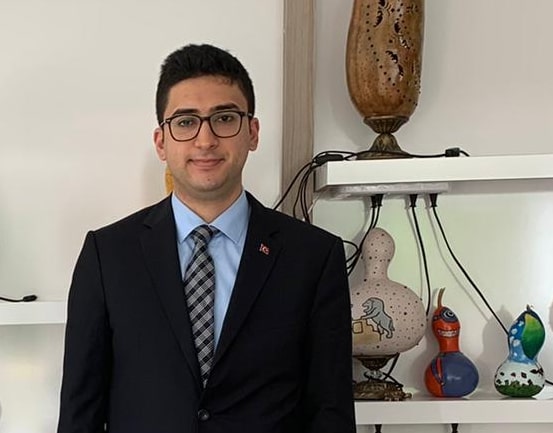A Turkish citizen of Armenian descent has for the first time in the history of the Turkish Republic been appointed as a district governor, according to a report in the bilingual Armenian weekly Agos on Wednesday.
Berk Acar, 27, has been appointed as a district governor in the Babadağ district of the western province of Denizli.
Acar, who studied law at İstanbul’s Bilgi University, took the written exam in Ankara last year to become a district governor. He ranked 72nd out of 13,374 candidates. Among the successful candidates, 475 were invited for interviews, where Acar also performed well.
Acar is expected to soon travel to Babadağ and assume office.
Armenians in Turkey are one of the indigenous peoples of the country with an estimated population of 50,000 to 70,000, down from a majority population of over 2 million between the years 1914 and 1921.
Turkey’s former law on Public Servants dated 1925 required public servants to be ethnically Turkish. This law, which was criticized for being discriminatory against Turkish citizens of other ethnicities, was amended in 1965, and the requirement for becoming a public servant was changed to being a Turkish citizen among other criteria.
However, the amendment failed to bring about a change in practice, with Armenians as well as other Turkish citizens of different ethnicities complaining about being denied the opportunity to work as a public servant although they meet the relevant criteria.
Reports show that Armenians are among the most targeted minority group in terms of hate speech in Turkish media.
Turkey categorically rejects that the killing of at least 1.5 million Armenians in the final days of the Ottoman Empire was tantamount to genocide.
The official Turkish stance views the brutal process not as genocide but as massacres, referring to the difficult times during World War I when the then-Ottoman Empire was falling apart. However, a total of 31 countries and many international scholars recognize the incidents as genocide.

